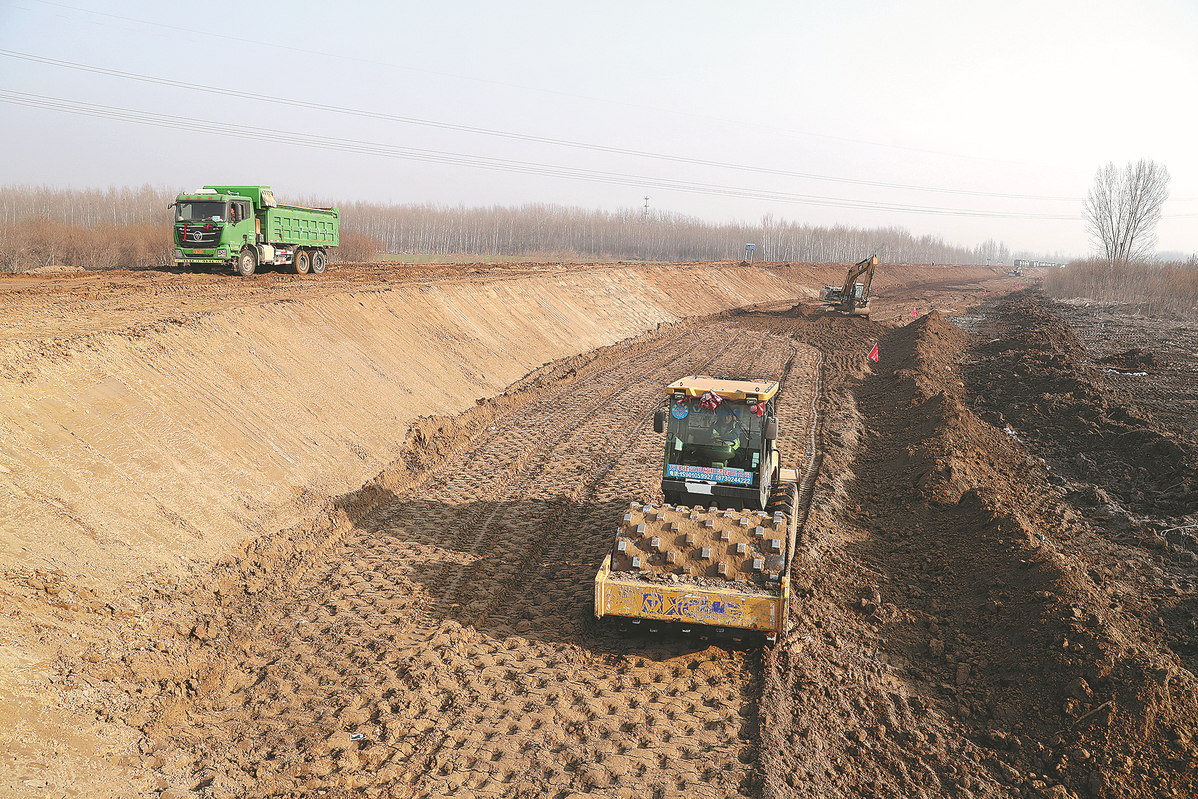Post-flooding work ensures residents live in comfort
Reconstruction efforts pay off after devastating summer rainstorms






Abundant harvest
In Tianjin, Hao Xiangfeng, 46, a farmer from Diliufu village, Xinkou town, Xiqing district, is expecting a bumper harvest from the vegetables he planted in newly renovated greenhouses.
"Thanks to solid flood drainage efforts, the floodwaters receded in mid-September. During that month, I received a loan of 100,000 yuan, and later I was paid 500,000 yuan in compensation by the insurance company. These funds enabled me to renovate all 17 greenhouses and plant vegetables in October," he said.
Hao, who operates the largest farm in the village and also runs agritainment homestays, which are designed to draw locals with various attractions, said the crown daisies he planted in October have already flowered. The celery he planted in November will be ready for harvest in time for the Spring Festival next month.
Hao's story is just one of many that illustrate the agricultural sector's recovery in flood-affected areas of Tianjin.
The Diliufu Party chief, Hao Qingshui, said, "This autumn, we changed the crop variety. Instead of planting rice, we took advantage of the season to grow winter wheat."
Some 2,000 greenhouses in the village were inundated by floodwaters.
In addition to assisting residents, local governments helped companies resume production.
In Zhuozhou, financial institutions have granted 3,300 loans totaling nearly 2.03 billion yuan to businesses and farmers affected by the floods. All 1,685 enterprises and 9,294 individual businesses have resumed production, the local government said.
Last month, at a warehouse owned by BooksChina, one of the country's biggest online booksellers, staff members scanned the barcodes of titles ordered by buyers.
BooksChina, which has two publishing warehouses that occupy about 10,000 sq m in Zhuozhou, lost nearly 4 million books in the flooding, along with tools, vehicles, and sealing equipment.
After the floodwaters receded, Zhuozhou, which is home to more than 200 publishing houses, was left with warehouses full of ruined books.
Now, the three-story-high shelves at one of the BooksChina warehouses are full of new books. Workers search for titles ordered online, scan barcodes, and efficiently package customers' orders.
Huang Ping, founder of the company, said, "With help from the local government, we resumed operations in early September."
The company received support from all sectors of society after the flooding. With local government help, it has been granted rent reductions, three years of subsidized loans, and favorable insurance policies, Huang said.
Nearly 1 million books are now in stock at the company's warehouses.
"In future, we will be protected against property losses caused by disasters such as this," Huang said, adding that Baoding has established a joint insurance system for the book warehousing industry, with the local government sharing risks with insurance companies.














